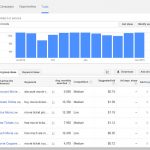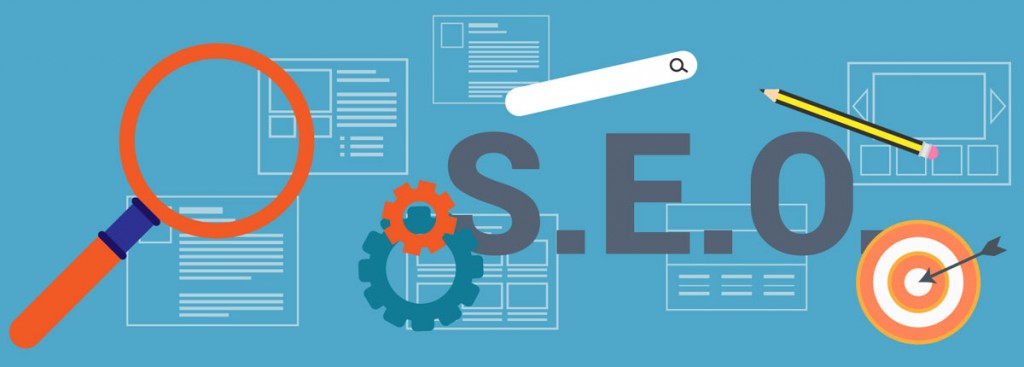You may have never heard of the term “On Page SEO” before, but if you are a website owner who wants to learn how to market his website on the internet, then you are sure to come across this unique strategy of ranking a website on a search engine. Due to cut throat competition in the market nowadays, every online business firm is trying its best to optimize its website in order to get a better search engine ranking by using a combination of Search Engine Optimization techniques. On Page Optimization is one such Search Engine Optimization technique, which, if done well, can allow you to boost your rankings and thus attract huge potential traffic.
Some of the basics of On Page Optimization are explained below:

What is On Page Optimization?
On Page Optimization is an important part of Search Engine Optimization that consists of different methods, techniques, changes, and strategies that are implemented on the web pages of a specific website in order to make it friendly and attractive for both internet users and search engines. These methods include techniques such as changing the META tags (META title, description, keywords and other tags to describe the content of the web page), reducing the size of each web page using compression in order to increase page speed and decrease load times, having informative, unique, and high quality content that provides value to the users, making sure that each page on the website can be indexed, following all search engine guidelines, having crawl-able link structures, having a title tag on each webpage, having rich snippets, optimizing image and other HMTL tags, having a website sitemap, etc. While some of these techniques may require a lot of technical knowledge, others are very easy to implement and can be done by anyone by following simple tutorials available on the internet. Moreover, if your website uses any popular Content Management System such as WordPress, Joomla, Drupal, etc., there are multitudes of SEO plugins available to download which can make On Page SEO a piece of cake for any user, no matter what his technical skills are.
So, why is On Page Optimization important?
On Page Optimization is an important part of SEO because it helps in making the website look more professional by helping avoid usability problems that could hinder the experience of the users viewing the website. Not only this, but On Page Optimization also makes it easier for the search engines to recognize what each page on the website is about by using the META information present on the webpage, so that they can classify and rank it accordingly. Moreover, following search engine guidelines and good SEO practices while doing On Page SEO also adds authority to the website, which results in higher rankings in the search engines. Due to this, the search engines then begin to trust the website and understand that the content posted on it is of a very high quality, and this in turn leads to more traffic from those search engines. Therefore, as you can see, On Page Optimization is a very important part of SEO as it can have a huge impact on how a website/webpage is ranked for its keywords.
What to Know Before Starting?
Before you start working on the On Page SEO of your website, it would be wise to do complete research on the topic and gain knowledge by reading various books, articles, and guides available on the internet. A good recommendation for a complete beginner would be to start with Google’s own Search Engine Optimization Starter Guide. It would also be wise to read about other aspects of SEO such as Keyword Research, Content Creation, etc. since they are directly related to On Page Optimization. While doing On Page SEO, you would also need to make sure that you understand all the terms and strategies involved in the process correctly, since a simple mistake/misinterpretation on your part can have a huge impact on your website’s rankings.
Given below are some important methods/techniques you should be aware of before you start working on the On Page SEO of your website:
-
Choose unique keywords
Choosing the right keywords is extremely important if you are running an online bu
 siness. You should always try to search for keywords that are directly related to your business, and receive a large amount of searches every month. Not only this, but you must also analyze the competition of those keywords and should try to target keywords with low competition. Also, while choosing keywords, you should not just target any keyword with a high number of searches that is related to your business. Instead, you should try to target those keywords which you think will be the best in converting your website visitors into potential buyers of your products and services. For example, the keyword “iPhone 6” receives a lot more searches every month than the keyword “Buy iPhone 6”. However, the keyword “Buy iPhone 6” is a lot easier to convert since the people searching for that keyword are actually planning to buy an iPhone.
siness. You should always try to search for keywords that are directly related to your business, and receive a large amount of searches every month. Not only this, but you must also analyze the competition of those keywords and should try to target keywords with low competition. Also, while choosing keywords, you should not just target any keyword with a high number of searches that is related to your business. Instead, you should try to target those keywords which you think will be the best in converting your website visitors into potential buyers of your products and services. For example, the keyword “iPhone 6” receives a lot more searches every month than the keyword “Buy iPhone 6”. However, the keyword “Buy iPhone 6” is a lot easier to convert since the people searching for that keyword are actually planning to buy an iPhone. -
Choose a relevant domain
 Choosing an attractive and relevant domain name is also a very important part of On Page SEO. While buying a domain name, you should try to look for a name that instantly tells users what your website/company is about. Not only does this make it easier for them to remember your website, but it also becomes a lot easier to rank your website in the search engines if your domain name contains the keyword you are planning to target.
Choosing an attractive and relevant domain name is also a very important part of On Page SEO. While buying a domain name, you should try to look for a name that instantly tells users what your website/company is about. Not only does this make it easier for them to remember your website, but it also becomes a lot easier to rank your website in the search engines if your domain name contains the keyword you are planning to target. -
Post quality content
 It has been said over and over again that content is the “King” of Search Engine Optimization. It is the ultimate thing that customers are searching for. Without high quality and informative content, a website is completely useless. So, while creating a website, make sure to keep website content on the top of your mind. In fact, it is always a good idea to keep an extra budget aside for website content before building a website. Even after the website is built, it is again a good idea to keep adding new content on the website to attract new customers and more search engine traffic. Search engines such as Google are always searching for new content on a website, and if a website has old/outdated content, it quickly loses its ranking, since no one would want to visit a website with that sort of content.
It has been said over and over again that content is the “King” of Search Engine Optimization. It is the ultimate thing that customers are searching for. Without high quality and informative content, a website is completely useless. So, while creating a website, make sure to keep website content on the top of your mind. In fact, it is always a good idea to keep an extra budget aside for website content before building a website. Even after the website is built, it is again a good idea to keep adding new content on the website to attract new customers and more search engine traffic. Search engines such as Google are always searching for new content on a website, and if a website has old/outdated content, it quickly loses its ranking, since no one would want to visit a website with that sort of content. -
Optimize the META Data of Each Web Page
Another important aspect of On Page Optimization is optimizing the META tags of each webpage on the website. These META tags contain information such as the web page’s title, keywords, description, etc. a
 nd provide this data to the search engines, so that it becomes easier for them to recognize what the web page is about. Not only this, but META tags also allow a webmaster to control what information is displayed about their website on the search engine results page, since it is these same META tags that the search engines use to store the description of a website in their database. Therefore, each web page on the website should have its own unique META tags that should provide a short summary on what that web page is about.
nd provide this data to the search engines, so that it becomes easier for them to recognize what the web page is about. Not only this, but META tags also allow a webmaster to control what information is displayed about their website on the search engine results page, since it is these same META tags that the search engines use to store the description of a website in their database. Therefore, each web page on the website should have its own unique META tags that should provide a short summary on what that web page is about.



1 Comment. Leave new
Excellent article!
View Comment